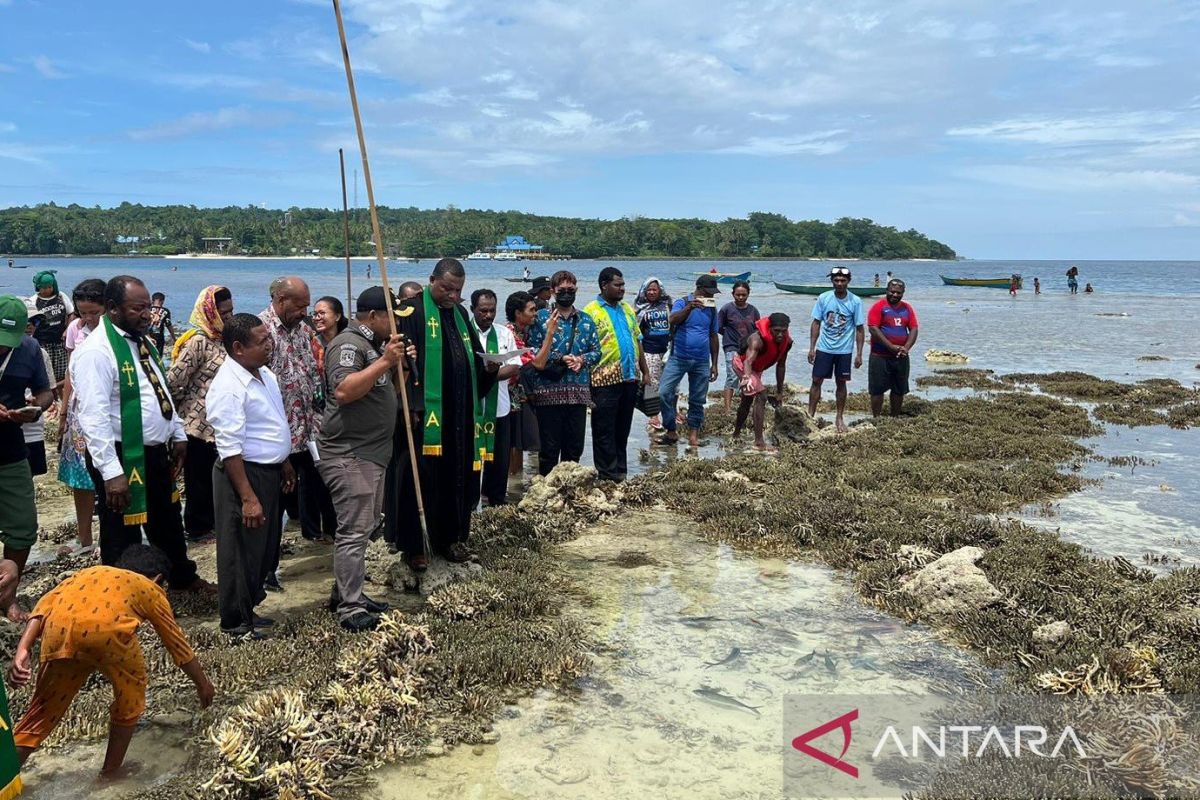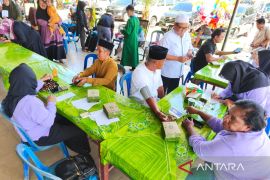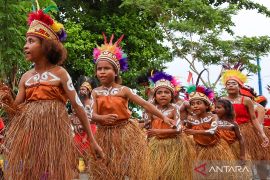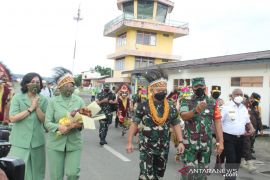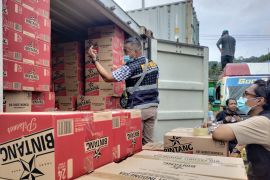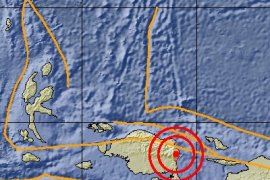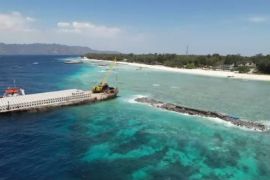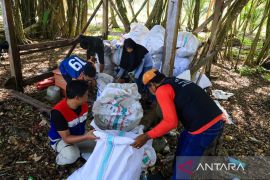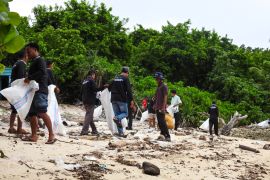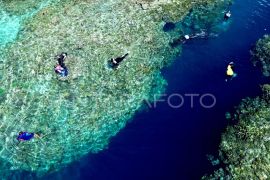Equipped only with a humble face mask, a snorkel, and a pair of fins, Echon began exploring the hidden world underneath the waters of the island of Nusmapi, commonly known as Lemon Island.
“There are an abundance of fish, including those of bigger sizes,” Echon said as he resurfaced after diving for over five minutes.
The chairperson of Ketapang Dive Community is not new to diving activities. To him, spending 5-10 minutes under water is just a piece of cake.
As a diver and environmental activist, Echon dove into the sea in the hopes of witnessing the positive impacts brought about by the “Sasi” tradition, which was recently implemented and concluded by the residents of Lemon Island, on the marine ecosystem there.
During the observance of the tradition, the residents were forbidden from extracting marine resources in an area of 48.8 hectares around Lemon Island. It is worth noting that 10.5 hectares of Lemon Island’s water area are home to coral reefs.
The people believe that misfortune would befall upon those who ignore the prohibition.
The people of Lemon Island conducted a ritual to commence a period of Sasi, which they perceive as a means to preserve the marine ecosystem, on March 31 last year before performing another ritual to end it on May 25, 2024. Another period is planned to begin on August 1 of this year.
“Prior to the observance of Sasi, we saw only a handful of fish here. However, their population increased after we carried out the tradition. Moreover, we can now see turtles here,” Echon remarked.
The implementation of Sasi initiated by Lemon Island's residents and Bahtera Utrecht Church has proven to be instrumental in preserving the environment, he added while enjoying a fresh coconut.
Due to the prohibition put in place during Sasi, the residents of Lemon Island had to sail and dive farther in order to catch fish. The people consider it as a requisite action to ensure the sustainability of the marine ecosystem, which serves as the source of their life.
Opposition to Sasi
Joel Rumbobiar, the holder of customary rights over Lemon Island, said that fishing was a source of livelihood for him and most residents of the island, as well as having economic importance.
The commencement of the Sasi period forced fishermen to sail farther to neighboring districts, such as West Papua's South Manokwari and Biak Numfor of Papua Province.
In addition to being prohibited from catching any fish in the determined area, the fishermen were also not allowed to resort to non-environmentally friendly methods and means that might harm coral reefs, such as the use of bombs and crowbars.
“At first, some of the residents opposed Sasi. However, they changed their mind and even voiced their commitment to sustaining the tradition for years to come after we talked this matter out,” Rumbobiar remarked.
Sasi is not viewed merely as an effort to conserve the marine ecosystem. In fact, the people of Lemon Island believe that they can attract more divers and tourists to visit the island by maintaining the population of fish by following Sasi.
After observing Sasi, the people of Lemon Island came to realize the importance of ensuring the sustainability of the priceless marine ecosystem that they are blessed with.
Church's initiative
A representative of the Bahtera Utrecht Church, Yoseph Raubaba, noted that the church proposed the observance of Sasi and received backing from several NGOs, such as Kawal Papua Barat, Ecodefender, Econusa, and Ketapang Dive Community.
Raubaba said that in the past, the people of Lemon Island regarded Sasi as a ritual through which they sought help from their ancestors’ spirits to boost the population of fish.
He stated that currently, the people view the tradition in a broader sense, considering it as a way to express gratitude to God and take good care of his creations.
"We return what belongs to God," he affirmed.
On behalf of the Manokwari district government, Head of East Manokwari Sub-district Amos Andries Rumsayor echoed the local governments’ full support for the observance of Sasi on Lemon Island.
He praised the observance of the tradition, saying that it has helped in the restoration of the marine ecosystem within a single year.
Since Lemon Island lies within the region of Manokwari District, Rumsayor underlined the need for the district government and all residents of the island to work in synergy for the sake of the sustainability of the island’s marine biodiversity.
“The government and the people must share the responsibility to safeguard the beauty of the underwater ecosystem. We need to protect the environment and keep it clean,” he remarked.
Related news: The shift from mining to fisheries sector for Papuans' welfare: Govt
Related news: Ministry designates marine conservation areas in Bangka Belitung
Editor: Rahmad Nasution
Copyright © ANTARA 2024
